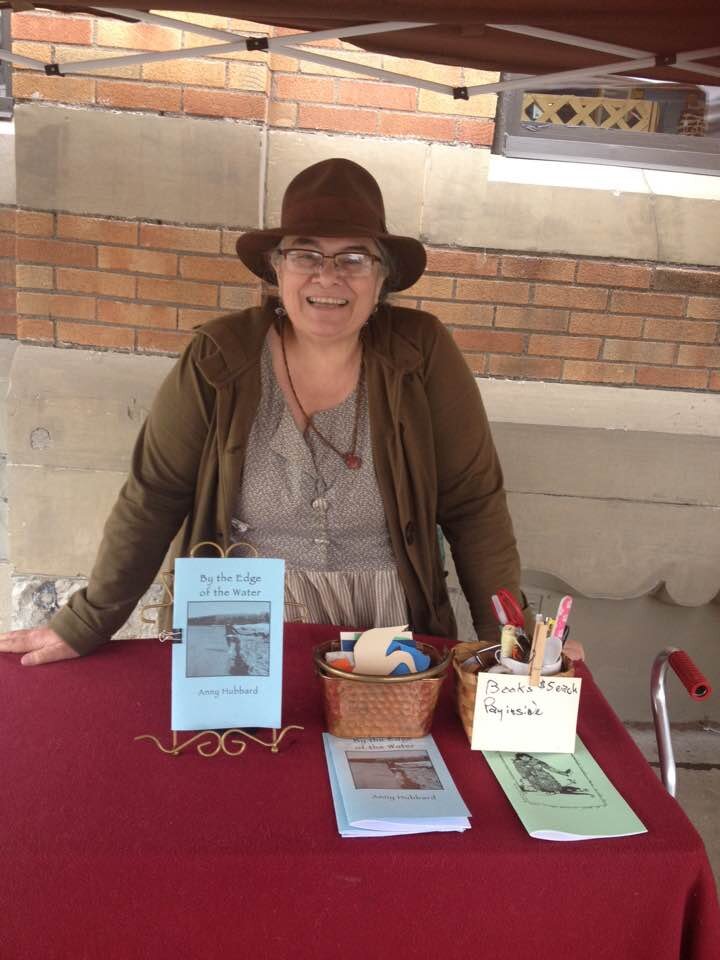2021 Michigan Heritage Award Recipients Work to Preserve Traditional Art Forms
Michigan has a wealth of cultural traditions that make up the fabric of the creative sector, and some of the greatest creations coming out of the Great Lakes have a moment to shine each year as the Michigan Traditions Arts Program of Michigan State University present the annual Michigan Heritage Awards. Founded in 1985, the Michigan Traditional Arts Program has awarded over 120 heritage awards, featuring a wide array of disciplines from music, to ornamental ironwork, percussive dance, Native American storytelling, and much more.
Anny Hubbard, 2021 Michigan Heritage Award Recipient
The purpose of this program is clear, intentional, and critical for the sustained support of cultural makers. “The Michigan Heritage Awards are presented each year to honor master tradition bearers in Michigan who continue the folk traditions of their families and communities through practice and teaching," explained Marsha MacDowell, Director of the Michigan Traditional Arts Program. “The attention and honor extended to these artists through the Michigan Heritage Awards are important not only to them but to all of us who cherish the state's cultural heritage."
Recipients of the 2021 Michigan Heritage Award are Anny Hubbard of Sault Ste Marie for her birch bark cut out work, and Dr. Deborah Smith Pollard of Detroit for her community leadership in African American gospel music radio, concert promotion, and education.
"We seek nominations from around the state so that the awards continue to reflect the great diversity of skills, ethnicities, and cultural backgrounds of Michiganders,” explained Micah Ling, Michigan Heritage Award Coordinator. “It is a true delight each year to learn more about our home and its people."
For many of the award recipients, their work that makes them so deserving of the award is at the core of their personal heritage, and furthers the celebration of the rich diversity throughout the state. Anny Hubbard explained, “It’s a craft that I can remember my Grandma teaching, cutting out bunnies when I was a little girl because someone came over and said they wanted to. We would cut patterns, and that’s what we had done before there was European contact and there were printed fabrics.”
Dr. Deborah Smith Pollard, 2021 Michigan Heritage Award Recipient
And for Deborah, she grew up with gospel as very prevalent in her household, “I am the oldest and shortest of four children to a pastor that even before that was a singer and choir director, and my mom was an accompanist. There were all kinds of music at our house, classical, jazz, Broadway – music has always been a part of my life.”
For these award recipients, both are continuing to educate the community on these art forms to keep them alive, share the traditions in which they were taught, and celebrate their heritage and perspective with the world. For Anny, she continues to use birch bark to cut out Native American pow wow regalia, and travels all over to teach workshops on cutting patterns. “It means a lot to me to be recognized with this award, and I just hope that I’ve taught enough people about birch bark cut out art so that they can continue to each other people for future generations,” added Anny. “There is so much that needs to be saved, and needs to be taught, so we don’t lose ourselves.”
Education is equally at the root of Deborah’s work as she has been conducting research into the evolution of gospel music, and how the genre has evolved to reach different and new audiences – and taking that all over the world to teach others. “I can’t tell you how many times in the last year or two, someone has asked me, ‘does Gospel music still matter?’ and I get to explain that the art form is not confined to church.” Referencing the world-famous song, “Oh Happy Day,” Deborah explained how this traditional Gospel hymn is used in many popular movies and even changed the culture in Japan where people sing and dance to it. “To know that someone that loved God enough to do an arrangement of this hymn, touches people, makes them happy, and that this musical form has impacted people all around the world – music makes a difference in people’s lives.”
Preserving these art forms, and continuing to celebrate them and their rich history in Michigan remains a fundamental goal of the Michigan Heritage Awards. This statewide program continues to advance cross-cultural understanding and equity in a diverse society through the documentation, preservation and presentation of traditional arts, folklife, and everyday culture.
To learn more about the program, or how you can nominate someone for this award, visit traditionalarts.msu.edu.


